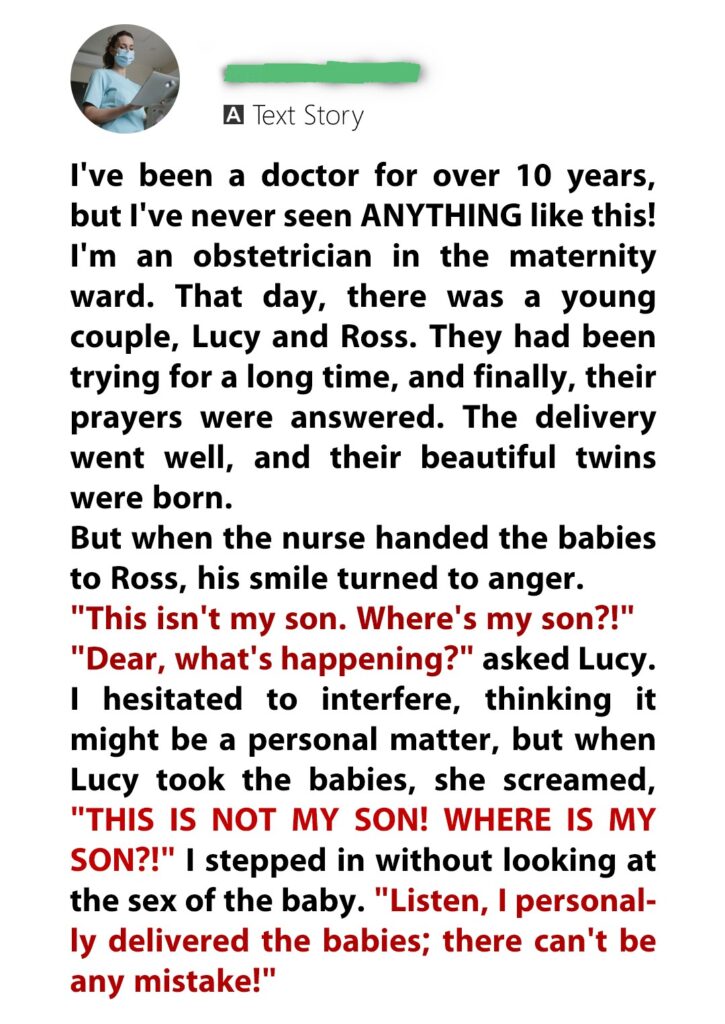Lucy and Ross had waited years for the joy of parenthood. When they learned they were expecting twins—a boy and a girl—their hearts overflowed. But joy turned to horror when the nurse returned from a routine postnatal check with two baby girls. Lucy’s face drained of color. “Where is my son?” she demanded, her voice trembling.
The nurse, Savannah, insisted there was no mistake. But Lucy clung to her instincts and medical records that confirmed she had delivered a boy and a girl. Ross backed her, threatening to involve the police. Dr. Carter, the attending physician, tried to calm the storm, but Savannah’s hesitation and refusal to hand over the documents raised suspicion.
Lucy followed them discreetly to Dr. Carter’s office, where she overheard a tense exchange. Savannah had confused Lucy with another patient—also named Lucy Matthews—who had delivered twin girls. The error was grave, but Lucy sensed something deeper. Savannah’s tears and evasiveness hinted at guilt beyond a clerical mix-up.
Eventually, the truth unraveled: Savannah had recently lost her own child and, in a moment of emotional collapse, had tried to hold onto a baby she wasn’t meant to keep. It wasn’t malice—it was grief. Lucy, though furious, saw the brokenness in Savannah’s eyes and chose compassion over vengeance.
Her son was found safe, and the hospital took swift action to prevent future errors. But Lucy’s experience became more than a cautionary tale—it was a testament to maternal instinct, the fragility of grief, and the power of empathy in the face of betrayal.

